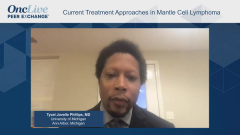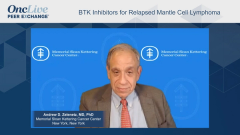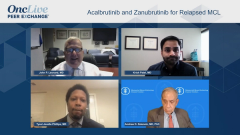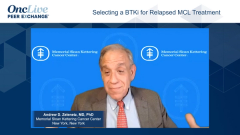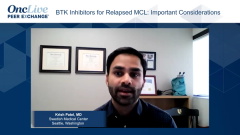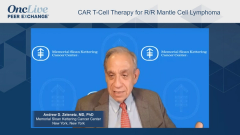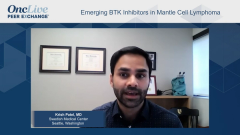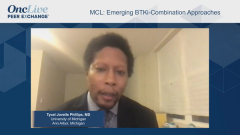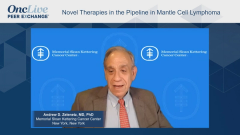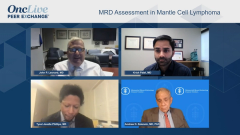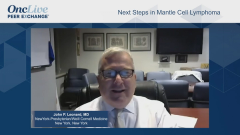
Venetoclax in Mantle Cell Lymphoma
Episodes in this series

John P. Leonard, MD: There was a comment earlier that mantle cell lymphoma and CLL [chronic lymphocytic leukemia] have these parallels. Andy talked about mutated and unmutated disease. Now we have venetoclax. I don’t want to call it a CLL drug, but it certainly is active and used in CLL. What about its role in mantle cell lymphoma?
Tycel Jovelle Phillips, MD: Regarding venetoclax, the oral BCL2 inhibitor, we have data in the relapsed/refractory setting, albeit in a BTK [Bruton tyrosine kinase] inhibitor–naїve population that showed a very good overall response rate. Its role in mantle cell lymphoma will likely be just in combination with some of these other agents that are already established, such as the BTK inhibitor lenalidomide and some of these other things you can combine with. The data as a single agent, especially in the relapsed/refractory setting and the post-BTK setting, haven’t been very impressive. We have 2 published articles that show very short durations of response with venetoclax. Then we have a recent abstract from ASH [American Society of Hematology Annual Meeting] that also shows a very short duration. I look at it in the relapsed/refractory setting as kicking the can down the road. It’s not really going to get you to where you need to be, but it can sometimes be a bridge to get to something else as a transition.
Our current guidelines have listed it as a single agent and also in combination with ibrutinib, based on some of the early data that came from the early study with ibrutinib and venetoclax. Obviously we have SYMPATICO, which compares ibrutinib-venetoclax with ibrutinib. Its role in the relapsed/refractory setting and up front is really going to be in combination vs as a single agent.
John P. Leonard, MD: Andy, what’s your sense of venetoclax? Is it a similar scenario, in which you may use it in combination? Do you ever add it on to a BTK inhibitor in a patient who’s progressing? What are your thoughts about that?
Andrew D. Zelenetz, MD, PhD: Earlier on, we had some good results with venetoclax plus rituximab in patients even who had multiple recurrent disease. But with broad exposure to BTK inhibitors, I agree that the responses aren’t as robust. What you just pointed out is something that I often try to do. We’re starting to lose a response to the BTK inhibitor. We want to improve that response. If I can get the insurance company to pay for it, I’ll add venetoclax to it, hoping that we’re going to get that synergy that seemed to be present from Constantine Tam’s publication.
Transcript Edited for Clarity




